Conductors for Pigs


Vidoflex 6 is known for its excellent conductivity and is suitable for semi-permanent fencing that is shorter than 500m. Vidoflex 6 is now available in several lengths.
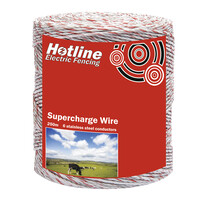

P21/250 Supercharge 6 Strand Electro-Plastic Fencing Wire is Hotline's mid-strength polywire, suitable for fence runs of up to 750m. The polywire is strong and conductive, containing six stainless steel conductors. 250m.


Gallagher TurboLine Polywire 2 x 400 m (blue) is a premium fence strand designed to repel game like wild boar. Featuring 3 tinned copper wires and 21 polyethylene wires for excellent conductivity, it’s ideal for long, mobile fences.


500 m of powerful fencing with Supercharge Electro Wire, featuring 6 stainless steel conductors for excellent power transmission. Durable and designed for small to medium-distance systems, it offers enhanced visibility with white wire and red trace lines.


Durable 9-strand electro wire with copper & steel conductors. Ideal for sheep fencing & long runs over 1000m. High visibility & conductivity.
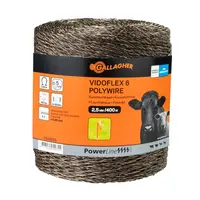

Vidoflex 6 is known for its excellent conductivity and is suitable for semi-permanent fencing that is shorter than 500 m. Vidoflex 6 is now available in several lengths.
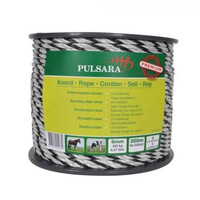

- Cord with 6 x 0.16 mm stainless steel conductors
- 1 x 0.25 mm copper conductor with a breaking strength of 350 kg
- Resistance is 0.37 Ohm/m
- Suitable for long fencing.
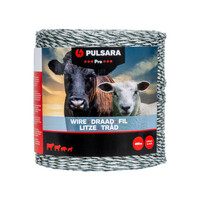

Our Pulsara Pro Polywire (400m) is a strong, UV-resistant fencing conductor with six galvanised steel conductors for reliable performance. Designed for longevity, it provides excellent conductivity and resilience in various conditions. With a great qualit
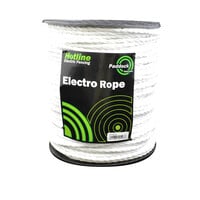

6mm Paddock electro rope - 100m - White paddock rope with stainless steel conductors
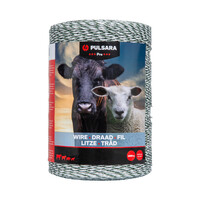

- Pulsara Pro wire 1.000m
- UV-resistant for extra durability
- 6 galvanized steel conductors
- High quality price ratio
